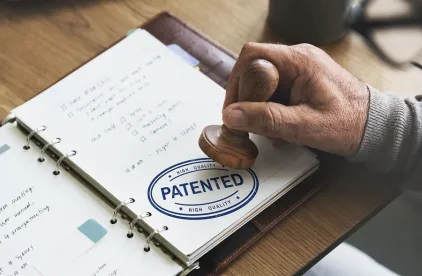The USPTO appears to have dropped its plans to overhaul the Information Disclosure Statement (IDS) process, but that’s no excuse for its failure to process IDSs in accordance with its current rules. Most egregiously, the USPTO erroneously charges a Patent Term Adjustment (PTA) deduction for IDSs filed with a Rule 704(d) statement because its PTA calculation process fails to determine whether such a statement was included. While patent owners can file an application to be awarded that PTA, such an application requires a $200 fee–not to mention time to identify the error, prepare and file the petition, and ensure a Certificate of Correction is granted.
The IDS Patent Term Adjustment Penalty
The USPTO treats an IDS filed after a response or Request for Continued Examination (RCE) as a “supplemental reply or other paper” that can trigger a PTA deduction for “Applicant Delay.” The USPTO cites 37 CFR § 1.704(c)(8) as providing for such a deduction even if the IDS is timely under the IDS rules.
The USPTO rules promise that no PTA deduction will be taken if the IDS is filed to submit items cited by the USPTO or a foreign patent office within 30 days of the submission. In particular, 37 CFR § 1.704(d) provides:
A paper containing only an information disclosure statement … will not be considered a failure to engage in reasonable efforts to conclude prosecution … under paragraphs (c)(6), (c)(8), (c)(9), or (c)(10) of this section, … if the paper … is accompanied by a statement that each item of information contained in the information disclosure statement:
(i) Was first cited in any communication from a patent office in a counterpart foreign or international application or from the Office, and this communication was not received by any individual designated in § 1.56(c) more than thirty days prior to the filing of the information disclosure statement; or
(ii) Is a communication that was issued by a patent office in a counterpart foreign or international application or by the Office, and this communication was not received by any individual designated in § 1.56(c) more than thirty days prior to the filing of the information disclosure statement.
Thus, if the applicant is able to act quickly, the IDS PTA penalty can be avoided if the items to be submitted were cited in a counterpart foreign or international application or by the USPTO, and if the applicant includes a Rule 704(d) statement in the submission.
The IDS Patent Term Adjustment Error
Unfortunately for applicants, the USPTO PTA calculation process does not always involve determining whether an IDS filed after a response or RCE included a Rule 704(d) statement. Thus, the USPTO often charges a PTA deduction under 37 CFR § 1.704(c)(8) even though such a deduction is improper under 37 CFR § 1.704(d).
The PTA Correction Process
When the USPTO makes an error in its PTA calculation, a patent owner can seek correction by filing an “application for patent term adjustment” under 37 CFR § 1.705(b). Such an application requires “[a] statement of the facts involved” and “[t]he fee set forth in § 1.18(e),” which currently is $200.
While applications to correct this Rule 704(d) error are routinely granted, another glitch in the PTA process imposes additional burdens on patent owners to ensure that the USPTO follows through with the correction. Although the USPTO should automatically issue a Certificate of Correction when its PTA redetermination results in a different PTA award (see MPEP § 2754), the USPTO sometimes fails to take that last, important step. This may be because there is no automatic mechanism that sends a patent to the Certificates of Correction branch once a PTA redetermination has been made. Thus, once their PTA applications have been granted, patent owners may need to contact someone in the Certificates of Correction branch themselves to advise them of the need for a Certification of Correction to complete the PTA correction process.
Undue Burdens On Patent Owners
The USPTO’s failure to confirm that an IDS filed after a response or RCE did not include a Rule 704(d) statement before charging a PTA deduction forces patent owners to bear the costs of this error. Patent owners need to have their own mechanisms in place to identify this PTA error, prepare and file an application for corrected PTA with a $200 fee, and follow up with the USPTO to ensure a Certificate of Correction is granted. This is an undue and unacceptable burden when systemic shortcomings in the USPTO’s own processes are at the root of PTA errors that impact numerous patent owners.




 />i
/>i

